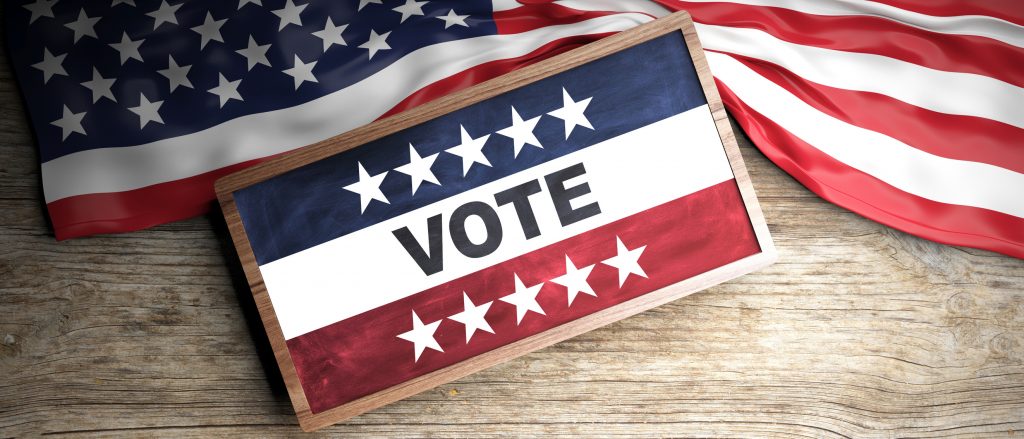(The Center Square) – A new Commonwealth Foundation report reveals the four largest government unions spent $27.9 million on Illinois politics from 2021-2022. That’s more money than any other state.
Report co-author Dave Osborne said governments are increasingly led by politicians who care more about union executives than union members or taxpayers.
The report looked at the top 10 politicians who received the most public union PAC money.
“I hate to tell you this, but four of those top 10 do come from Illinois. Chicago Mayor Brandon Johnson, Illinois House Speaker Chris Welch, Illinois Senate President Don Harmon and Illinois Supreme Court Justice Mary Kay O’Brien,” Osborne said. “Both Harmon and O’Brien received nearly a million dollars from union PACs.”
Government unions accounted for more than 80% of Johnson’s campaign funds.
Welch, D-Hillside, received $1.25 million in government union PAC money. Welch recently let an Illinois school-choice program for 9,600 low-income children expire. The Invest in Kids Act was opposed by the Illinois Education Association and other public school teachers’ unions.
“One of the reasons that we focused on public sector unions was that public sector unions have the power of government to basically collect union dues and PAC money and then spin that to get politicians elected that will be more favorable to them at the bargaining table,” Osborne said.
The landmark 2018 U.S. Supreme Court case Janus v. American Federation of State, County and Municipal Employees from Illinois found public sector employees could not be forced to pay agency fees to unions they do not agree with. Private sector employees may still be required to join a union for their job in Illinois.
“In contrast, private sector unions have to deal with management for a private firm that they cannot hand-select and that if they’re going to use them to collect dues, it’s not done on the taxpayer’s dime,” Osbourne said. “That’s an important distinction. Perhaps because of that difference, public sector unions have really grown and outstripped private sector unions by far.”
Osborne confirms 96% of union money contributed to PACs went to support Democratic party candidates and organizations for use in federal and state campaigns. However, Osborne said it’s not just the money that makes public unions so powerful.
“We focused on the money here with this report, but it’s also very true that unions are not powerful simply because of the money,” Osborne said. “They have received all sorts of state subsidies that make their political endeavors far more successful.”
Osborne said one of those subsidies is access to teachers and other public employees through email systems and through teacher mailboxes, and the union leadership is actually permitted to meet with government employees at the workplace.
“They are able to use the state system to collect PAC money and dues money,” Osborne said.
The IEA sent emails to Illinois teachers across the state directing them to use their “private emails” to contact their local legislators to say “no” to the Invest in Kids Act renewal. The Invest in Kids Act was a school-choice program where Illinoisans donating private dollars to the program would get an Illinois income tax credit.
The report found that public unions’ dues money actually accounts for about 60% of overall union political spending.
“Dues money is flipped almost immediately after collection into super PACs, into dark money groups, and into other political organizations that end up doing progressive politics,” Osborne said.
Government union spending through political action committees at the state and local levels totaled $145.1 million during the 2021-22 election cycle. State PAC spending was highest in Illinois ($27.9 million), followed by California ($24.9 million), Minnesota ($13.2 million), Pennsylvania ($12.1 million) and Washington ($7.5 million). Together, these five states accounted for nearly 60% of all state PAC expenditures.
“The numbers from our report have only been this last political cycle, and this is an off-presidential year. What we need to understand about unions is that they are not just a voice, they’re a dominant power in politics,” Osborne said. “If we are going to do anything about it, I think there have to be some legislative fixes on the state level that would correct and refocus unions on doing their job, which is to represent workers, and to keep politicians really independent and focused on what they do.”
Osborne said workers deserve transparency. Legislatively, Osborne is calling for unions to be required to inform workers about the causes their dues support.
The only entity that outspent unions on the federal election side is George Soros’ super PAC.
Originally published by The Center Square. Republished with permission.
For more from Budget & Tax News.
For more public policy from The Heartland Institute.
